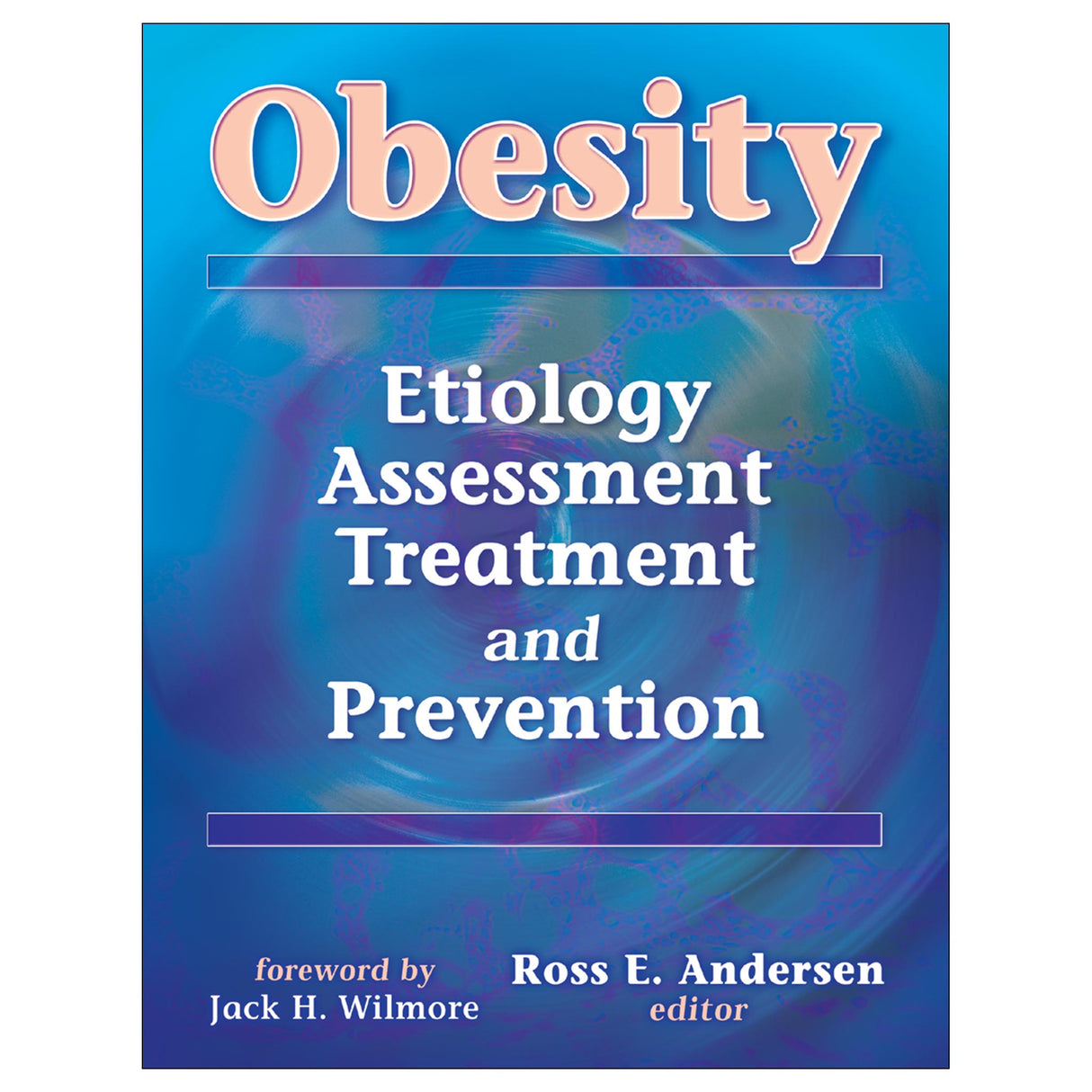Obesity
Etiology, Assessment, Treatment, and Prevention
Author: Ross Andersen
$59.00 CAD
Obesity: Etiology, Assessment, Treatment, and Prevention is a comprehensive professional reference of weight management research and techniques. Featuring chapters from some of the world's top specialists in the field of weight control, it provides the most current and accurate information available today for treating obesity.
The textbook combines a literature review with practical applications, incorporating expert analysis and synthesis of obesity treatment and prevention. The book is an important resource that will prepare health professionals and clinicians to help patients of all ages manage this complex and pervasive disease.
Obesity: Etiology, Assessment, Treatment, and Prevention devotes an entire chapter to treating and preventing obesity in children and discusses other relevant topics: - Nutrition therapy
- Physical activity
- Alternative therapies such as pharmacotherapy
- Promising trends in obesity treatment
In addition, graphs, tables, and chapter summaries make it easy for busy professionals to find and review key issues on the topic.
As obesity continues to increase at an alarming rate throughout the world, this reference provides practitioners with the latest insight into integrating physical activity, nutrition, psychology, and medicine to help obese patients manage their weight.
Audience
A text and reference for nutrition and obesity specialists, exercise physiologists, physicians, physician's assistants, and psychologists.
Foreword
Jack Wilmore, PhD
List of Contributors
Preface
Ross Andersen, PhD, FACSM
Part I: Etiology of Obesity
Chapter 1. Prevalence of Overweight and Obesity in the United States
Carlos J. Crespo, DrPH, MS, FACSM
Ellen Smit, PhD, RD
Chapter 2. Psychosocial Correlates and Consequences of Obesity
Myles S. Faith, PhD
Patty E. Matz, PhD
David B. Allison, PhD
Chapter 3. Economic Aspects of Obesity: A Managed-Care Perspective
Nicolaas P. Pronk, PhD
Chapter 4. Genetic Influences on Obesity
Brock A. Beamer, MD
Part II: Assessment of the Obese Patient
Chapter 5. Health-Related Quality of Life in Obese Individuals
Kevin R. Fontaine, PhD
Susan J. Bartlett, PhD
Chapter 6. Body Composition Assessment in the Obese
Timothy G. Lohman, PhD
Laurie Milliken, PhD
Chapter 7. Clinical Evaluation of the Obese Patient
Samuel C. Durso, MD
Chapter 8. Dietary Intake: Recording and Analyzing
Judith M. Ashley, PhD, RD
Vicki H. Bovee, MS, RD
Chapter 9. Assessment of Physical Activity and Energy Expenditure
Michael J. LaMonte, PhD, MPH
Barbara E. Ainsworth, PhD, MPH
Catrine Tudor-Locke, PhD
Section III: Treatment and Prevention
Chapter 10. The Importance of Body Weight Maintenance in Successful Aging
James Dziura, MPH
Loretta DiPietro, PhD, MPH
Chapter 11. Treating and Preventing Pediatric Obesity
Marian Tanofsky-Kraff, MA
Helen Hayden-Wade, PhD
Paul A. Cavazos, BA
Denise E. Wilfley, PhD
Chapter 12. Medical Nutrition Therapy Application
Laure Sullivan, RD
Chapter 13. Physical Activity Treatment
Shawn C. Franckowiak, BS
Ross E. Andersen PhD, FACSM
Chapter 14. Physical Activity As a Therapeutic Modality
John M. Jakicic, PhD
Chapter 15. Helping Individuals Reduce Sedentary Behavior
Brian E. Saelens, PhD
Chapter 16. Physical Activity Promotion as a Public Health Strategy for Obesity Prevention
Adrian Bauman, MD, PhD
David Crawford, PhD
Chapter 17. Medication for Weight Management
William Hartman, PhD
Joan Saxton, MD
Chapter 18. Future Directions in Treating Obesity
Dana M. Catanese, BA
Melissa L. Hyder, BA
Walker S. Carlos Poston, PhD, MPH
John P. Foreyt, PhD
Index
About the Editor
“This edited book is an outstanding resource for professionals interested in the causes, treatment, and prevention of obesity. Dr. Andersen assembled an expert team of scientists who provide up-to-date reviews of topics vital to those who want to understand the complex factors associated with obesity. This book offers a comprehensive study of important contributors to obesity, from genetic predisposition to environmental influences. Given the rising prevalence of obesity in the United States and other industrialized nations and the need to address this growing public health issue, this book comes at an opportune time. There is no other resource available that compiles such varied obesity-related topics in a coherent and comprehensive manner. I recommend this book to professionals and trainees alike.”
Deborah Rohm Young, PhD
Associate Professor
Department of Kinesiology
University of Maryland
“We live in frightening times! As our society becomes more affluent, disease and affliction loom larger in our lives. In the case of obesity, we have reached epidemic proportions. Dr. Ross Andersen has edited and organized a masterful compendium concerning this public malady. It is my hope that clinicians and professionals globally will utilize the expert fact, prescription, and insight contained in this volume to effect positive changes and behaviors as they pertain to the roots, causes, and preventive measures regarding obesity.”
Ken Germano
Executive Director
American Council on Exercise
Obesity is an epidemic that demands a book to provide a knowledge base for the academician and a guide for the health and fitness practitioner. The answer is Obesity: Etiology, Assessment, Treatment, and Prevention. Ross Andersen, of the Johns Hopkins School of Medicine, assembled national and international experts for this mission. Their contributions amount to this state-of-the-art interdisciplinary treatise on obesity and overweight. Whether you are a clinician seeking practical strategies (e.g., measuring body composition in overweight persons, tailoring exercise prescription for obese individuals) or a scientist in need of a current review of the literature and insights on obesity-related topics (e.g., psychosocial aspects of obesity, genetic role of obesity), this book will be an invaluable resource. Obesity: Etiology, Assessment, Treatment, and Prevention covers it all. My students know that weight management is usually about calories in versus calories out, but they also know that it can be much more complicated. Obesity: Etiology, Assessment, Treatment, and Prevention will be especially useful to my senior and graduate students planning a career in any health-related field.”
Lymperis Perry Koziris, PhD, FACSM
NSCA-CPT, CSCS, ACSM-HFI, USAW L-1 Coach
Associate Professor
Department of Kinesiology, Health Promotion, and Recreation
University of North Texas





